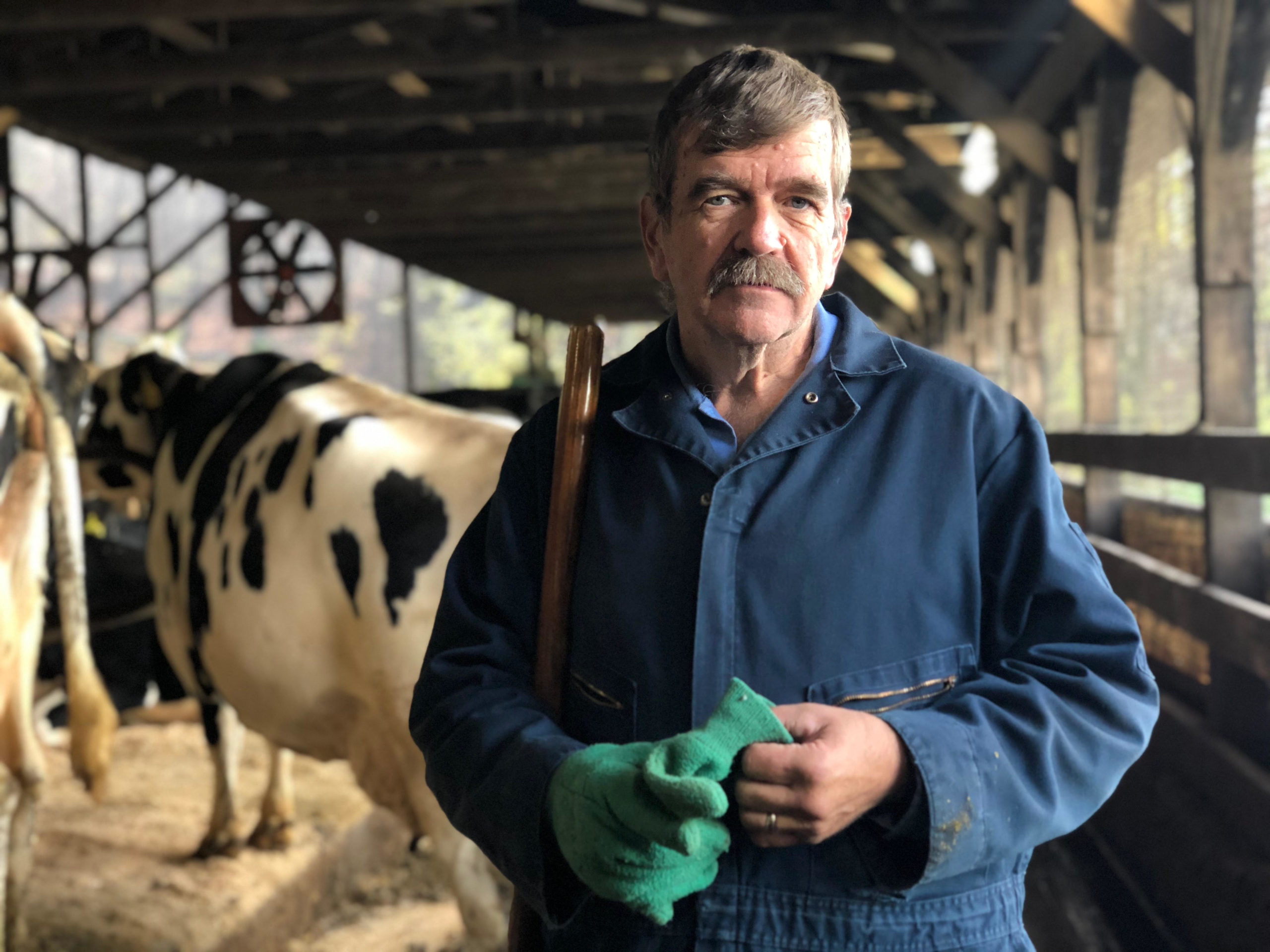 Dairy farms are dotted across the New England landscape. But with recent trends of low milk prices, over-supply, increased costs of doing business, consolidation of agricultural conglomerates, and the power and wealth in ag going to only a few: those dairies are being shuttered.
Dairy farms are dotted across the New England landscape. But with recent trends of low milk prices, over-supply, increased costs of doing business, consolidation of agricultural conglomerates, and the power and wealth in ag going to only a few: those dairies are being shuttered.
Dairy farmers, especially small family farms in New England, are in crisis.
Here are 9 Ways You Can Help
1. Purchase milk from grocery stores that purchase locally.
This is actually a lot more simple than you think! You will find locally sourced milk on the shelves at stores like Big Y, Stop and Shop, Whole Foods, Cumberland Farms, and other small regional chains and shops. Because so many farms sell their milk wholesale, and because our regional supply chain is so efficient, the store-brand milk will likely come from a New England family dairy farm.
2. Check the plant number.
Want to be sure that the milk in the store is from local farms? Every dairy product is required to provide a plant number on it’s label so that the milk can be tracked back to the processing plant where it was pasteurized and packaged. If you want to be sure that you are buying local milk, use WhereIsMyMilkFrom.com or check for the following codes:
-
- 25-18, Agri-Mark, West Springfield, MA (where Barstow’s milk goes!)
- 25-08, H.P. Hood, Agawam, MA
- 25-26, Friendly’s Ice Cream, Wilbraham, MA
- 09-906, Bahler / Oak Ridge Farms, Ellington, CT
- 25-56, Mapleline Farm, Hadley, MA
- 25-528, McCray Creamery, South Hadley, MA
 3. Buy Cabot products.
3. Buy Cabot products.
Cabot is a brand well known in New England – and for a good reason! Cabot is a cooperative owned by the family farmers that provide them with the milk to create their award winning cheese and dairy products. All 850 of the farmer owners own and operate their often multi-generational dairy farms. When you buy Cabot you support New England and New York farmers but also green space, sustainable practices, animal welfare, and your local economy. Cabot is a success story of what a regional business can offer their customers and farmers in a globalized world.
4. Educate yourself on dairy alternatives.
Did you know there are 9 essential nutrients that naturally occur in milk? For almond milk, soy milk, and other dairy alternatives, those nutrients are processed in. Of course dairy alternatives are a terrific solution to those with lactose intolerance or sensitivities which is certainly a good thing! Learn the differences between dairy alternatives and milk here! Plus, as already mentioned, dairy is local – milk will not travel as far, requires less processing time, and supports local farmers – compare that to almond milk which will always come from California or from overseas.
 5. Visit your local dairy farm!
5. Visit your local dairy farm!
Nearly every dairy in New England has diversified in order to survive! Visit your neighborhood dairy farm to purchase the products that they make there. If they don’t do their own processing (most don’t), enjoy lunch, ice cream, or other products sold there. Engage in the farm tours, educational programs, art classes, special events, haunted hayrides, or other offerings that the farm to help support a local family business.
6. Dairy or not, support other local farms.
Farmers are still operating on a very localized economy. Barn equipment, lumber, mechanic services, veterinary services, feed, and much more are sourced locally, keeping dollars in the Pioneer Valley. In addition to business on the farm, a retail farmstand purchases produce, grocery, crafts, and goods from nearby farms. The farming community is helping each other stay afloat, you can help too!
7. Support local advocacy efforts:
from establishing “right to farm” communities to pushing for a more localized system of price supports, these can help our dairy farms stay afloat. With November elections approaching, ask candidates for public office what action they plan to take to support local dairy farms and encourage them to take this issue seriously.
 8. Ask your question!
8. Ask your question!
Much to the anguish of livestock farmers, there is tons of misinformation on the internet. Anti-agriculture organizations have lots of time to spend making sure their negative dairy post is the first thing to show up on Google search – and plenty of money to spend on anti-ag advertising in your Facebook feed. The farmers are busy, well, farming, making food, and caring for our herd. For a customer to feel good about feeding our products to their family is a number one priority for all dairy farmers. Give us a call, shoot us an email, schedule a farm tour, we’ll get you the answers.
9. Spread the word!
Let your friends know why you drink milk, bring Cabot cheese to your next family gathering, share this post. Need some more ideas on how to get the word out? Contact us!
